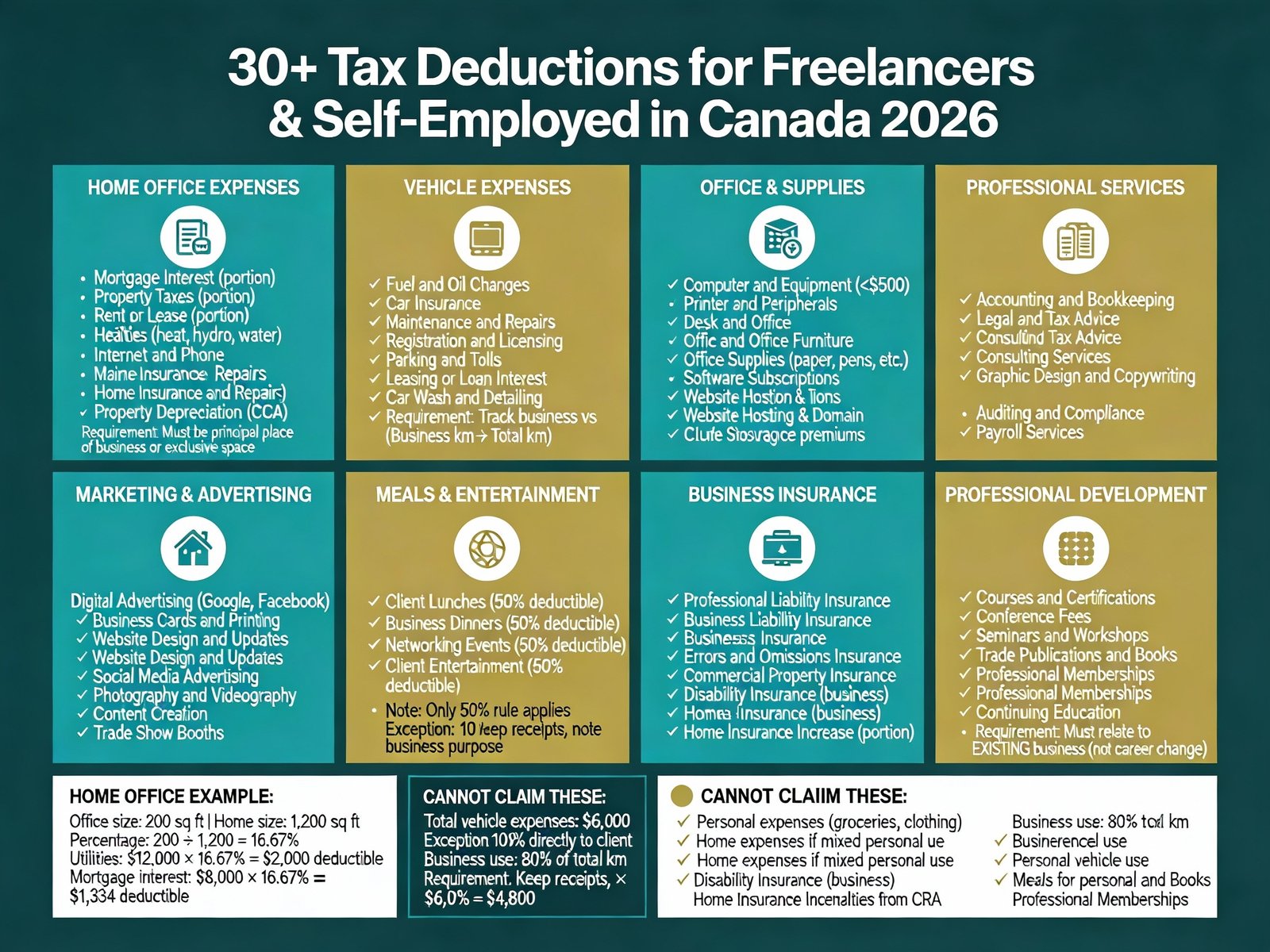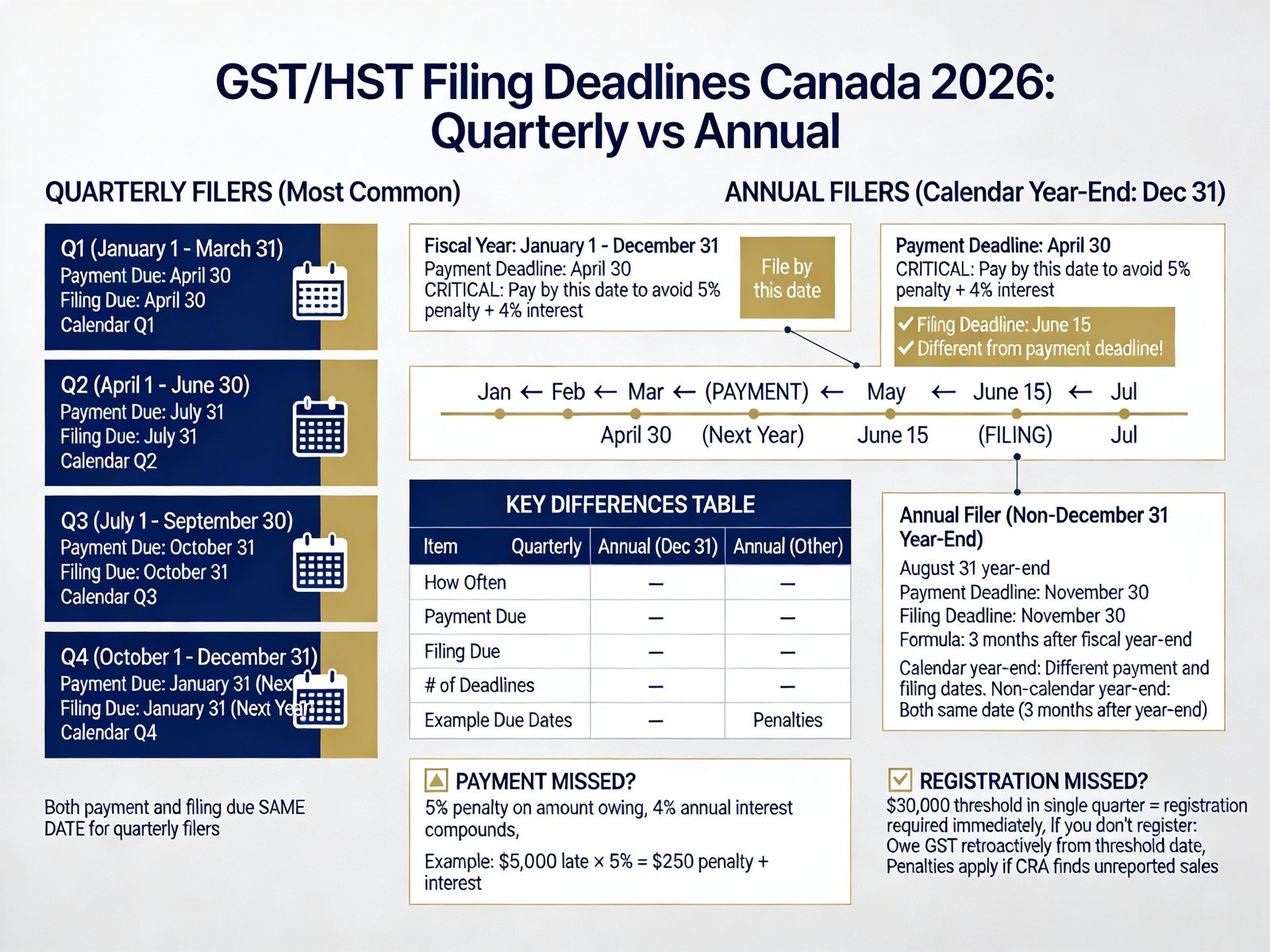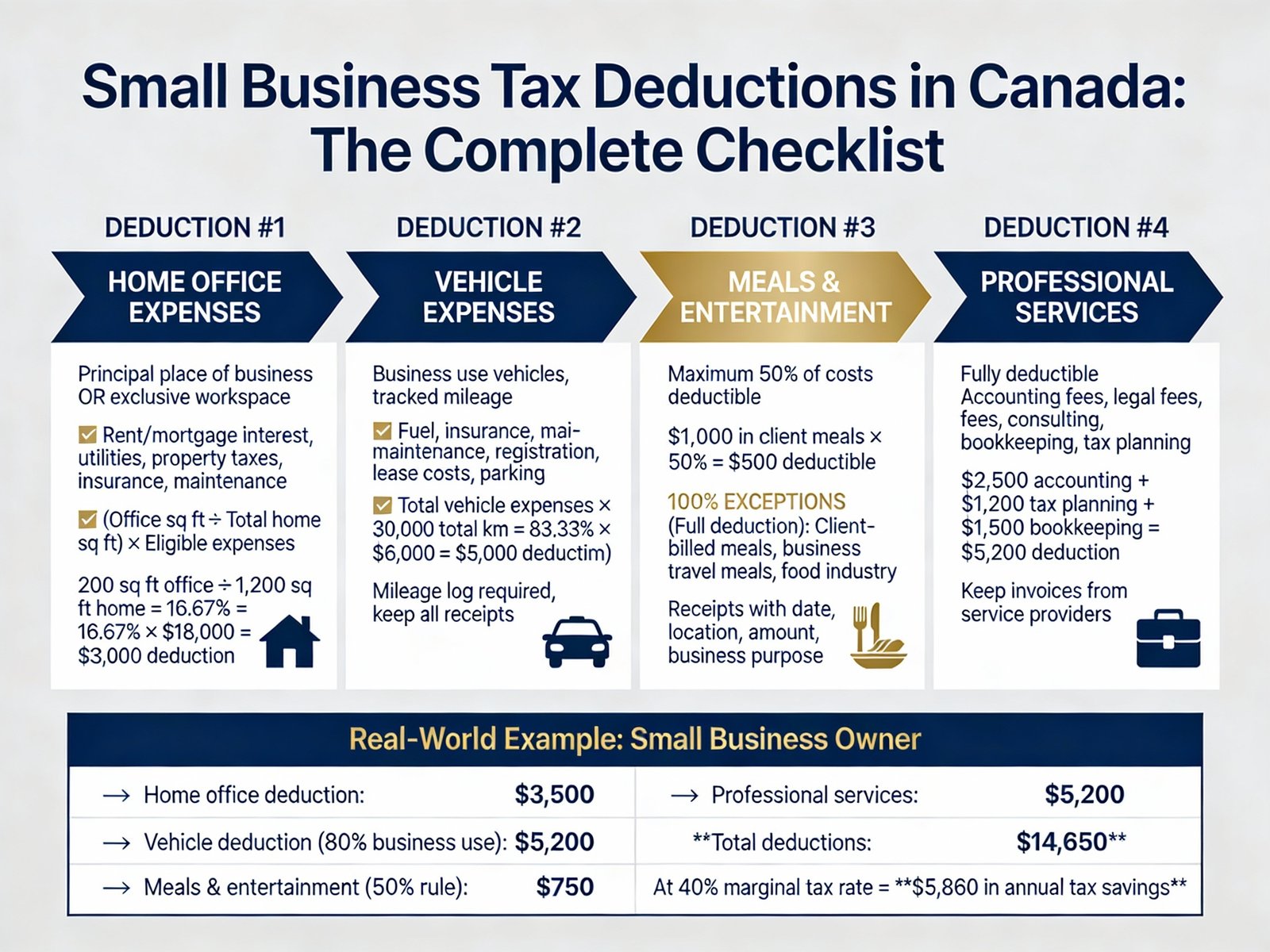Introduction: In the dynamic landscape of Canadian business, every dollar counts. One powerful tool at your disposal for optimizing your financial health is understanding and leveraging tax deductions. Proper bookkeeping is the key to unlocking a realm of potential savings through legitimate tax deductions. In this detailed guide, we’ll explore the world of tax deductions for Canadian businesses, and how strategic bookkeeping can help you maximize savings while staying compliant with Canadian tax regulations.
1. The Power of Tax Deductions: Tax deductions are expenses that reduce your taxable income, resulting in lower taxes owed. By identifying and tracking eligible expenses, businesses can significantly reduce their tax liability, freeing up capital for growth, investment, and innovation.
2. Eligible Business Expenses: A range of business expenses are eligible for tax deductions in Canada, including rent, utilities, employee salaries, marketing costs, travel expenses, and more. Proper bookkeeping is essential to accurately categorize and track these expenses.
3. Documenting Expenses: Effective bookkeeping involves meticulous documentation of expenses. Save receipts, invoices, and records of every transaction. Digital tools and cloud-based platforms make record-keeping efficient, organized, and easily accessible.
4. Home Office Deductions: If you operate a home-based business, you may be eligible for a home office deduction. Bookkeeping helps calculate the proportion of your home used for business purposes, leading to a deduction for related expenses.
5. Travel and Meals Deductions: Business-related travel and meals can be deductible expenses. Proper bookkeeping records these expenses accurately, including details like the purpose of the expense and the individuals involved.
6. Vehicle Expenses Deductions: If you use a vehicle for business purposes, you can claim deductions for mileage, fuel, maintenance, and insurance. Detailed records of business-related travel are crucial to support these deductions.
7. Capital Cost Allowance (CCA): For assets such as equipment and machinery, CCA allows you to deduct a portion of the asset’s cost over time. Effective bookkeeping tracks these assets’ purchase price, date of acquisition, and other relevant details.
8. Research and Development (R&D) Deductions: Canadian businesses investing in R&D may be eligible for deductions. Precise bookkeeping tracks R&D expenses, ensuring they are accurately reported to maximize available deductions.
9. Professional Fees Deductions: Legal, accounting, and other professional fees incurred for your business are often deductible. Record these fees and ensure they are properly categorized.
10. Year-End Tax Planning: Effective bookkeeping throughout the year positions you for successful year-end tax planning. With accurate records readily available, you can strategically allocate expenses to optimize deductions and minimize taxes.
Conclusion: Proper bookkeeping isn’t just about compliance; it’s a powerful tool for unlocking tax deductions that can elevate your business’s financial performance. By meticulously tracking and categorizing expenses, you can harness the potential to significantly reduce your tax liability, freeing up resources for growth and innovation. In a business landscape where every financial decision matters, strategic bookkeeping becomes a cornerstone for maximizing savings, minimizing taxes, and positioning your Canadian business for sustained success.










 View Our Location
View Our Location





 181 Meadowview Bay, Sherwood Park, AB T8H 1P7, Canada (Online Clients Only)
181 Meadowview Bay, Sherwood Park, AB T8H 1P7, Canada (Online Clients Only)